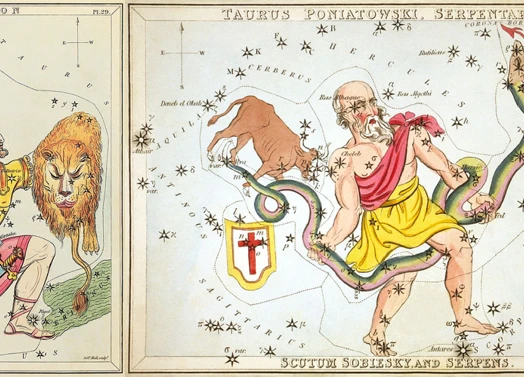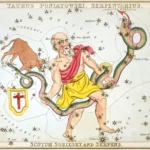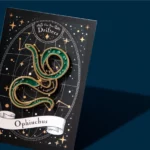In a world filled with ancient myths and cosmic wonders, there exists a fascinating connection that has long intrigued scholars and enthusiasts alike – the enigmatic link between Ophiuchus and ancient mythology. This elusive constellation, often referred to as the Serpent Bearer, holds a profound significance in various cultures and astrological traditions throughout history. Through a captivating journey of exploration, we will unravel the origins of Ophiuchus, delve into its intricate symbolism, discover its role in ancient astrology, and explore the mythological stories that surround this celestial entity. Join us as we embark on a quest to unlock the secrets of Ophiuchus and uncover the profound influence it has had on human imagination throughout the ages.
Contents
- The Origins of Ophiuchus
- Ancient Cultures and Ophiuchus
- Significance of Ophiuchus in Ancient Astrology
- Ophiuchus in Mythological Stories
- The Modern Rediscovery
- Conclusion
- Frequently Asked Questions
- References
-
Frequently Asked Questions
- 1. How did Ophiuchus become a part of the zodiac wheel?
- 2. What is the mythological story behind Ophiuchus?
- 3. Are there any famous legends or heroic tales associated with Ophiuchus?
- 4. How did the Babylonians perceive Ophiuchus?
- 5. What role did Ophiuchus play in Egyptian mythology?
- 6. How did the Mayans view Ophiuchus?
- 7. How has the rediscovery of Ophiuchus affected astrology?
- 8. Does Ophiuchus have specific characteristics based on ancient interpretations?
- 9. How does the inclusion of Ophiuchus in the zodiac wheel impact horoscope readings?
- 10. Is Ophiuchus considered a 13th zodiac sign?
- References
- Read More
The Origins of Ophiuchus
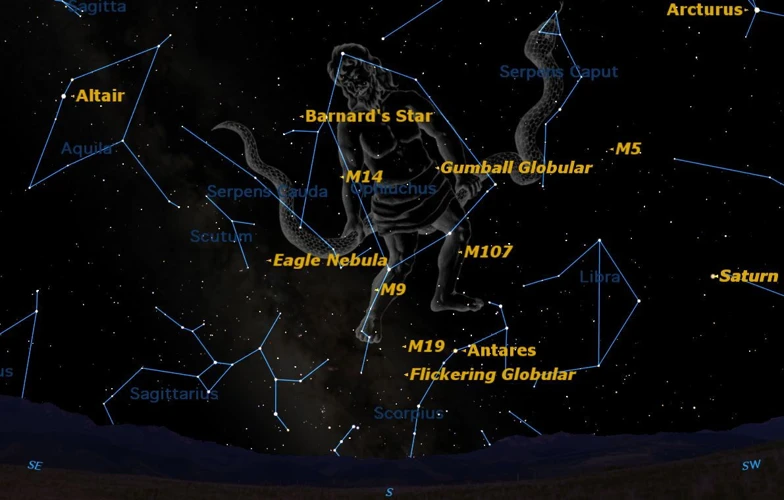
The Origins of Ophiuchus
Ophiuchus, often referred to as the Serpent Bearer, has its roots deeply embedded in ancient mythology. Let us embark on a journey to uncover the origins of this intriguing constellation and unveil the mysteries surrounding its symbolism.
The Serpent Bearer in Greek Mythology: According to Greek mythology, Ophiuchus is associated with the renowned myth of Asclepius, the god of healing and medicine. Asclepius was renowned for his ability to resurrect the dead, which led to concerns among the gods about immortality being granted to humans. To maintain the balance between life and death, Zeus struck down Asclepius with a thunderbolt, but later transformed him into the constellation of Ophiuchus. This mythological tale showcases the association of Ophiuchus with healing and the power to transcend the boundaries between life and death.
Mythological Influences on Ophiuchus Symbolism: Ophiuchus has deep connections with various mythological figures and archetypes across cultures. In Egyptian mythology, the constellation is linked with Imhotep, a revered physician and architect who was later deified as a god of healing. Imhotep’s significance as a healer and his association with Ophiuchus emphasize the constellation’s connection to medical knowledge and the quest for spiritual enlightenment. Similarly, in Hindu mythology, Ophiuchus is associated with the figure of Ashwatthama, a skilled physician and warrior.
It is fascinating to observe how these diverse mythologies converge upon the symbolism of Ophiuchus, painting it as a figure of healing, wisdom, and transformation. The intertwining of these myths adds depth and richness to the constellation’s narrative, reinforcing its standing as a celestial entity with profound cultural significance.
To continue the exploration of Ophiuchus and its influence in ancient astrology, let us now turn our attention to the connections between this constellation and various ancient cultures, such as the Babylonians, Egyptians, and Mayans.
The Serpent Bearer in Greek Mythology
The Serpent Bearer in Greek Mythology
Greek mythology weaves a captivating tale surrounding Ophiuchus, known in this realm as the Serpent Bearer. At the heart of this myth is the figure of Asclepius, the god of healing and medicine. Asclepius possessed remarkable healing abilities, even capable of resurrecting the dead. This extraordinary power raised concerns among the gods, as it threatened to disrupt the delicate balance between life and death. In response, Zeus, the king of the gods, struck down Asclepius with a thunderbolt, putting an end to his mortal life. However, recognizing Asclepius’ significant contributions to humanity, Zeus later transformed him into the constellation Ophiuchus. This celestial transformation served as a symbol of Asclepius’ enduring legacy, immortalizing his role as a healer for eternity. The myth of Asclepius and the creation of Ophiuchus encapsulate the celestial connection between healing, mortality, and the quest for transcendence.
Interestingly, the symbol associated with Ophiuchus, the serpent, holds its own powerful symbolism in Greek mythology. Serpents were believed to possess inherent healing and transformative qualities, making them an emblem of wisdom and renewal. The serpent entwined around the staff, known as the Rod of Asclepius, has become synonymous with the medical profession and is widely recognized as the universal symbol of medicine. This association further solidifies the connection between Ophiuchus, healing, and the pursuit of knowledge.
To further explore the intricate relationship between Ophiuchus and ancient cultures, let us now delve into the influences of this constellation in Babylonian, Egyptian, and Mayan astrology.
Mythological Influences on Ophiuchus Symbolism
Mythological Influences on Ophiuchus Symbolism
The symbolism of Ophiuchus runs deep with mythological influences that have shaped its meaning and significance in various cultures. Exploring these influences unveils the rich tapestry of beliefs and associations surrounding this enigmatic constellation.
In Greek mythology, the figure of Asclepius stands prominently, playing a pivotal role in shaping the symbolism of Ophiuchus. Asclepius, the god of healing and medicine, is often depicted holding a staff with a serpent coiled around it, a symbol known as the Rod of Asclepius. This association between serpents and healing is deeply tied to Ophiuchus, as it is represented as the Serpent Bearer in the zodiac. The intertwining serpents are believed to signify wisdom, rebirth, and transformation.
Meanwhile, Egyptian mythology introduces Imhotep, a prominent historical figure who later became deified as a god of healing. Imhotep, associated with Ophiuchus, symbolizes the pursuit of medical knowledge, wisdom, and spiritual enlightenment. This fusion of healing and spiritual qualities further amplifies the depth of Ophiuchus’ symbolism in ancient cultures.
In Hindu mythology, Ophiuchus finds its connection to Ashwatthama, a skilled physician and warrior. Ashwatthama is believed to have possessed immortality, creating an association between Ophiuchus and the quest for eternal life or transcendence.
These mythological influences intertwine and shape the symbolism of Ophiuchus, imbuing it with themes of healing, rebirth, wisdom, and the pursuit of transcendence. Through the lens of mythology, the enigmatic nature of this constellation comes into focus, inviting us to unravel its profound significance in ancient cultures.
To delve deeper into the significance of Ophiuchus in astrology, let us now explore its place in the zodiac wheel and the interpretations it holds in ancient astrological traditions.
Ancient Cultures and Ophiuchus
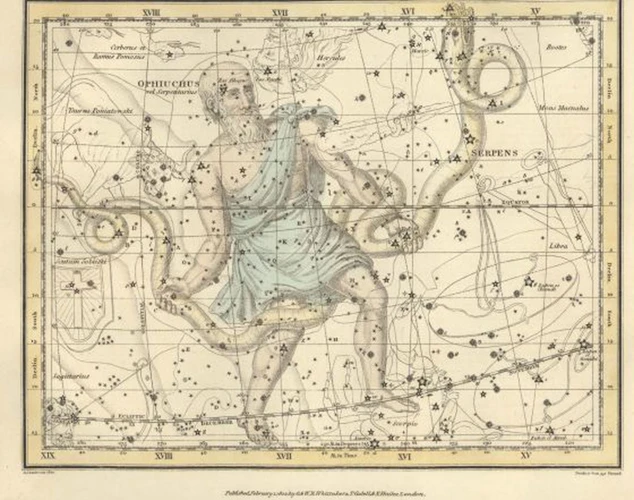
Ancient Cultures and Ophiuchus
The celestial presence of Ophiuchus extends beyond Greek mythology, captivating the imaginations of various ancient cultures. Let’s delve into the connections between Ophiuchus and civilizations such as the Babylonians, Egyptians, and Mayans, to uncover the profound significance attributed to this constellation.
The Babylonian Connection: The ancient Babylonians recognized Ophiuchus as the “Serpent God” and associated it with their deity known as Ningishzida. Ningishzida was a divine figure associated with healing, fertility, and rebirth, aligning with the themes encompassed by Ophiuchus. The Babylonians held Ophiuchus in high regard, highlighting its importance in their cosmological beliefs and celestial observations.
The Egyptian Influence: In Egyptian culture, Ophiuchus holds a special place as the constellation associated with the god Imhotep, as mentioned earlier. Imhotep was revered as a healer and a skilled architect, and his deification showcases the significance of Ophiuchus in the domain of medicine and spiritual enlightenment. The ancient Egyptians believed in the interconnectedness of the celestial and earthly realms, and Ophiuchus served as a celestial representation of healing wisdom in their cosmology.
The Mayan Perspective: The Mayans, renowned for their advanced understanding of celestial events, incorporated Ophiuchus into their complex astrological system. An understanding of the influence of Ophiuchus in Mayan astrology reveals intricate connections with nature and the cosmos. Ophiuchus was associated with the god Kukulkan, also known as Quetzalcoatl, who represented wisdom, knowledge, and the power of transformation. The Mayans believed that those born under the influence of Ophiuchus possessed unique attributes and were connected to the divine forces of healing and renewal.
These ancient cultures recognized the inherent symbolism and significance of Ophiuchus, integrating it into their belief systems and celestial observations. The diverse interpretations and expressions of Ophiuchus in these cultures highlight its lasting impact on human history and the universal fascination with this celestial entity.
To further explore the significance of Ophiuchus in ancient astrological practices and understand its placement in the zodiac wheel, let’s proceed to our next section. [Read more about the influence of Ophiuchus in Mayan astrology here.](/influence-of-ophiuchus-in-mayan-astrology/)
The Babylonian Connection
The Babylonian Connection
In the ancient civilization of Babylon, Ophiuchus held a significant place in their celestial observations and astrology. The Babylonians identified this constellation as the “Serpent God” or “Sarpanitum,” reflecting their belief in the power and influence of Ophiuchus in the cosmic realm.
The Babylonians were skilled astronomers and kept meticulous records of celestial events. They divided the ecliptic, the apparent path of the Sun across the sky, into twelve equal segments, each represented by a specific constellation. However, unlike the modern-day zodiac system, which includes twelve constellations, the Babylonians recognized an additional thirteenth constellation, Ophiuchus, interposed between Scorpio and Sagittarius.
This inclusion of Ophiuchus in the Babylonian zodiac demonstrates their recognition of its significance in shaping their understanding of celestial phenomena and its impact on human lives. The Babylonians associated Ophiuchus with healing and medicine, depicting it as a powerful figure who possessed the knowledge and skill to address ailments and restore balance to the body and soul.
It is fascinating to note that the Babylonian belief in the influence of Ophiuchus echoes the symbolism attributed to the constellation in other ancient cultures. This parallel not only emphasizes the enduring importance of Ophiuchus throughout different civilizations but also provides a deeper understanding of the archetypal qualities associated with this mysterious constellation.
To explore further connections between Ophiuchus and ancient cultures, let us now uncover the intriguing Egyptian perspective on this celestial entity.
The Egyptian Influence
The Egyptian Influence
The connection between Ophiuchus and ancient Egyptian culture runs deep, highlighting the constellation’s significance in their mythology and belief systems. In Egyptian mythology, Ophiuchus is closely associated with the figure of Imhotep, who was revered as a physician, architect, and high priest during the 27th century BC. Imhotep’s role as a healer, scholar, and wise advisor aligns with the symbolism of Ophiuchus as a constellation of wisdom, knowledge, and transformation.
Imhotep’s deification as a god of healing elevated Ophiuchus in Egyptian cosmology, further solidifying its importance within their culture. The Egyptians believed that devotees of Imhotep, and by extension Ophiuchus, possessed the ability to tap into divine healing energies and obtain spiritual enlightenment. This belief influenced the Egyptian approach to healthcare, where priests would often incorporate spiritual rituals and magical practices alongside medical treatments.
The association of snakes with Ophiuchus holds significance in Egyptian symbolism. Snakes were revered as symbols of rebirth and regeneration, qualities that the Egyptians attributed to Imhotep and Ophiuchus. The serpent’s shedding of its skin represented the cycle of death and rebirth, a concept that resonated strongly with the Egyptians’ view of the afterlife and the pursuit of spiritual transformation.
The profound influence of Ophiuchus in Egyptian culture can also be seen in their art and architecture. Depictions of Imhotep often showcase him holding the ankh, the symbol of life, and the was scepter, a symbol of power and authority. These representations highlight the connection between Ophiuchus, healing, and divine wisdom.
To dig deeper into the impact of Ophiuchus in different areas, such as personality traits and creative expressions, you can explore the concept of the independent and self-reliant Ophiuchus personality. Additionally, Ophiuchus’s influence can be seen in various forms of music and art throughout history.
The Mayan Perspective
The Mayan Perspective
The Mayans, known for their advanced understanding of astronomy, also had their own interpretation of Ophiuchus within their astrological system. In Mayan astrology, Ophiuchus is represented by the symbol of the Plumed Serpent, known as Kukulkan or Quetzalcoatl. This celestial figure is associated with wisdom, healing, and spiritual transformation.
In the Mayan zodiac, individuals born under the influence of Ophiuchus exhibit a unique set of characteristics. They are believed to possess a deep sense of intuition, wisdom, and a connection to the spirit world. Ophiuchus individuals are seen as having strong spiritual abilities and often find themselves drawn to the healing arts or spiritual practices.
The Plumed Serpent, representing Ophiuchus, also holds great significance in Mayan mythology. It is believed to be a deity responsible for bringing knowledge, civilization, and spiritual enlightenment to humanity. Ophiuchus, in the Mayan perspective, symbolizes the eternal cycle of life, death, and rebirth, embodying the ever-evolving nature of the human spirit.
Within Mayan artwork and architecture, representations of the Plumed Serpent can be found throughout ancient ruins. These artistic depictions depict the intertwining of the serpent and a human figure, symbolizing the unification of earthly and cosmic forces.
The Mayan perspective on Ophiuchus offers a unique and intriguing insight into the constellation’s role within their astrological system. It highlights the reverence the Mayans held for wisdom, healing, and the pursuit of spiritual enlightenment. To explore further the influence of Ophiuchus in Mayan astrology and its significance in other art forms, such as music and art, please follow the link here.
Significance of Ophiuchus in Ancient Astrology
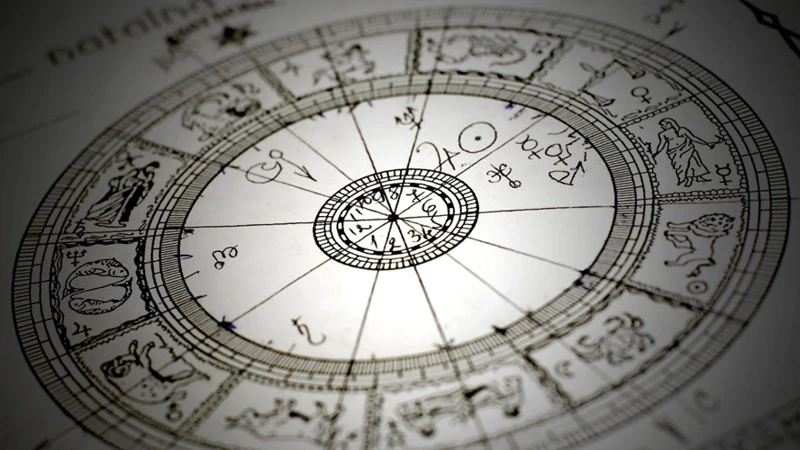
Significance of Ophiuchus in Ancient Astrology
Within the realm of ancient astrology, Ophiuchus holds a unique and intriguing place. Despite not being traditionally included in the Zodiac wheel, the constellation has gained significance in various astrological interpretations throughout history.
Ophiuchus in the Zodiac Wheel: While the familiar Zodiac is composed of twelve signs, Ophiuchus lies outside this traditional system. However, some astrologers have acknowledged Ophiuchus as a thirteenth sign, positioned between Scorpio and Sagittarius. Those born under this sign are said to possess traits such as intuition, healing abilities, and a deep connection to spirituality. This alternative perspective has sparked debates and discussions among astrologers and enthusiasts alike.
Ancient Interpretations and Characteristics: In ancient astrological traditions, Ophiuchus was often associated with the element of fire, symbolizing transformation and passion. Individuals born under this sign were believed to possess a natural inclination towards healing and a strong sense of justice. The sign was also linked to wisdom, intuition, and a desire for spiritual growth.
The significance of Ophiuchus in ancient astrology goes beyond its placement in the Zodiac system. It represents a unique energy and archetype that complements and expands our understanding of the celestial influences on human nature and destiny.
Exploring the characteristics and traits attributed to Ophiuchus individuals can offer valuable insights into one’s personality and life path. Those born under this sign are often described as independent, self-reliant, and spiritually inclined. They have a strong sense of purpose and are driven by their desire to make a positive impact on the world. Their natural charisma and ability to heal both physically and emotionally make them exceptional caregivers and guides.
Indeed, the significance of Ophiuchus in ancient astrology encourages us to broaden our perspectives and embrace the rich tapestry of celestial influences that shape our lives. By acknowledging the presence and traits associated with Ophiuchus, we gain a deeper understanding of the dynamics at play within the astrological realm.
Ophiuchus in the Zodiac Wheel
Ophiuchus in the Zodiac Wheel
In the realm of astrology, the Zodiac Wheel holds a revered place, serving as a guide to understanding personality traits, predicting future events, and exploring the cosmic influences on human life. However, the presence of Ophiuchus challenges the traditional structure of the Zodiac, leading to debates and discussions among astrologers.
Traditionally, the Zodiac Wheel consists of twelve signs, each representing specific periods of the year and associated with certain characteristics. However, Ophiuchus is said to occupy a thirteenth position in the sky, nestled between Scorpio and Sagittarius. This addition disrupts the established order and raises questions about the significance and impact of Ophiuchus in astrological interpretations.
While some astrologers argue for the inclusion of Ophiuchus as a valid sign within the Zodiac, others view it as more of a constellation that exerts influence but without formal classification as a zodiac sign. The character of Ophiuchus is believed to embody traits such as wisdom, healing abilities, and a deep connection to spirituality. Those born under the influence of Ophiuchus are thought to possess a unique and independent personality, equipped with strong intuition and a desire for self-discovery and growth.
The inclusion of Ophiuchus in the Zodiac Wheel presents an intriguing perspective on astrological interpretations. It challenges the established boundaries, reminding us of the vastness and complexity of the universe and the continuous quest for understanding the forces that shape our lives. As astrologers and enthusiasts explore the implications of Ophiuchus in the Zodiac, the significance and impact of this celestial entity continue to captivate and inspire further exploration.
Continue reading to uncover ancient interpretations of Ophiuchus and its characteristics in various astrological traditions, as well as the intriguing mythological stories surrounding this enigmatic constellation.
Ancient Interpretations and Characteristics
Ancient Interpretations and Characteristics
The ancient interpretations and characteristics associated with Ophiuchus offer us valuable insights into how this constellation was perceived in ancient astrological traditions. Let us delve into some of the intriguing aspects of Ophiuchus in ancient astrology.
1. Influence on Personality Traits: Ophiuchus is often depicted as having distinctive personality traits. Ancient astrologers believed that individuals born under this constellation possessed attributes such as independence, courage, and a strong sense of justice. This portrayal aligns with the mythological figures associated with Ophiuchus, reflecting their heroic qualities and their unwavering pursuit of truth.
2. Healing and Medicine: The Serpent Bearer is intricately linked to the domain of healing and medicine in ancient astrology. Ophiuchus was regarded as a symbol of wisdom and expertise in the art of healing, drawing inspiration from the mythological figure of Asclepius. Those born under this constellation were believed to possess innate healing abilities and often gravitated towards professions related to medicine, alternative therapies, or spiritual healing.
3. Transformation and Spiritual Enlightenment: Ophiuchus represented a transformative and spiritually enlightened figure in ancient astrological interpretations. The constellation’s association with resurrection, as seen in the myth of Asclepius, imbued Ophiuchus with a sense of resurrection and rejuvenation. Individuals influenced by this constellation were believed to undergo profound personal transformations throughout their lives, continuously seeking higher levels of consciousness and spiritual growth.
4. Serpent Symbolism: Ophiuchus is closely associated with serpents in various cultural mythologies. In ancient astrology, serpents symbolize wisdom, rebirth, and divine knowledge. Ophiuchus’s connection to serpents further reinforces its role as a harbinger of healing and spiritual awakening.
The ancient interpretations of Ophiuchus shed light on the constellation’s significance in the celestial narrative. The characteristics attributed to Ophiuchus individuals, such as independence, healing abilities, and spiritual quest, illustrate the profound influence this constellation had on ancient astrological practices. As we uncover the stories and legends associated with Ophiuchus, its mythical and astrological significance becomes all the more captivating.
Ophiuchus in Mythological Stories
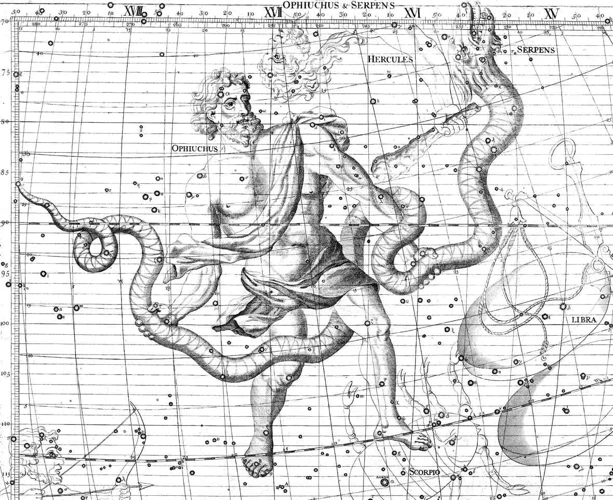
Ophiuchus in Mythological Stories
Within the realm of mythological tales, Ophiuchus assumes its own unique place, captivating the imagination with heroic narratives and connections to powerful gods and goddesses. Let us delve into the intriguing world of Ophiuchus in mythological stories and explore the enchanting characters associated with this celestial entity.
Heroic Tales and Legends: In Greek mythology, Ophiuchus is often associated with the legendary figure of Hercules, renowned for his divine strength and twelve labors. One of Hercules’ labors involved slaying the deadly Hydra, a mythical serpent-like creature with regenerative powers. In this myth, Ophiuchus plays a prominent role as the symbol of the serpent, with Hercules seeking its assistance in his perilous endeavor. The tale highlights the significance of Ophiuchus as a symbol of wisdom, transformation, and the aid one can find in navigating challenging circumstances.
Gods and Goddesses Associated with Ophiuchus: In Egyptian mythology, Ophiuchus finds its connection with the goddess Isis, revered as the goddess of magic, healing, and protection. Isis is often depicted with outstretched arms, reminiscent of the Ophiuchus constellation and symbolizing her role as a divine healer. This association gives Ophiuchus a profound connection to the divine feminine and the powers of rejuvenation and restoration.
In Hindu mythology, Ophiuchus aligns with Dhanvantari, the god of medicine and ayurveda. Dhanvantari is regarded as the divine physician, carrying the knowledge and remedies to alleviate suffering and restore balance. The representation of Ophiuchus as Dhanvantari underscores the connection between the constellation and the healing arts, emphasizing its importance in ancient cultures.
These mythological stories intertwine with Ophiuchus, highlighting its role as a symbol of healing, wisdom, and divine intervention. The tales not only showcase the rich imagination of ancient civilizations but also emphasize the timeless significance of Ophiuchus in human storytelling and the collective unconscious.
As we explore further, it becomes evident that the rediscovery of Ophiuchus in modern times has brought about a shift in astrological interpretations. Join us in the next section as we uncover the impact of this astrological shift and its implications for our understanding of the zodiac.
Heroic Tales and Legends
Heroic Tales and Legends
Within the realm of mythology, the constellation of Ophiuchus has been entwined in numerous heroic tales and legendary narratives throughout history. These captivating stories shed light on the significance and symbolism of Ophiuchus within different cultural contexts.
One prominent tale that features Ophiuchus is the Greek myth of Hercules and the Twelve Labors. The eleventh labor of Hercules involved slaying the fearsome Hydra, a monstrous serpent-like creature with multiple heads. As Hercules engaged in a fierce battle with the Hydra, he was supported by none other than Ophiuchus, who provided guidance and assistance in his arduous quest. This depiction further reinforces the association of Ophiuchus with healing and overcoming challenges, as it played a vital role in aiding Hercules in overcoming his formidable opponent.
In Egyptian mythology, the legend of Re and Apophis adds another layer of significance to Ophiuchus. Apophis, often depicted as a giant serpent, represented chaos and destruction. It was believed that Re, the sun god, had to navigate through the perilous journey of the underworld during the night, escaping the clutches of Apophis. Here, Ophiuchus is seen as a protector and guide, helping Re in his nightly battle against chaos and ensuring the triumph of order.
Mayan mythology intertwines Ophiuchus with the story of Kʼawiil, the deity of lightning and ruler of the celestial realms. Kʼawiil is often depicted wearing the serpent headdress associated with Ophiuchus, symbolizing power, transformation, and divine authority. This connection highlights the celestial nature of Ophiuchus within the Mayan cosmology, representing the bridge between the earthly and divine realms.
Through these heroic tales and legends, Ophiuchus emerges as a figure of strength, guidance, and divine assistance. Its presence in these narratives reinforces its significance within various mythological traditions, serving as a reminder of the power of resilience, healing, and the triumph of good over evil.
As we move forward in our exploration, let us now delve into the gods and goddesses associated with Ophiuchus, further unraveling the profound mythological connections of this intriguing constellation.
Gods and Goddesses Associated with Ophiuchus
Ancient mythology is replete with gods and goddesses associated with Ophiuchus, the intriguing constellation that has captivated our imagination. Let us delve into the mythological stories surrounding Ophiuchus and explore the divine figures that are intertwined with its celestial presence.
1. Asclepius: In Greek mythology, Asclepius takes center stage as the primary deity linked to Ophiuchus. Revered as the god of healing and medicine, Asclepius possessed great knowledge and skill in the art of medicine. The serpent, which is a prominent symbol in both Ophiuchus and the medical field, is often associated with Asclepius. Legend has it that Asclepius learned the secrets of healing from a snake, further solidifying the connection between Ophiuchus and medical prowess.
2. Imhotep: Moving to Egyptian mythology, we encounter Imhotep, a key figure associated with Ophiuchus. Imhotep was not only a skilled physician but also an architect and adviser to the pharaohs. His expertise in medicine and his benevolent nature led to his deification as a god of healing. Imhotep’s association with Ophiuchus highlights the constellation’s connection to the healing arts and the pursuit of spiritual enlightenment.
3. Apollo: In ancient Greek and Roman mythology, Apollo, the sun god, also shares a connection with Ophiuchus. Apollo was often depicted holding a snake, symbolizing his dominion over both the sun and healing. It is believed that Apollo bestowed healing powers upon Asclepius, further solidifying the link between Ophiuchus, healing, and the divine.
4. Ashwatthama: Hindu mythology introduces us to Ashwatthama, a legendary figure associated with Ophiuchus. Ashwatthama was a skilled physician and a key warrior in the epic Mahabharata. He is revered as an immortal and represents the theme of immortality, which resonates with Ophiuchus’s association with healing and the transcendence of mortal boundaries.
The gods and goddesses linked to Ophiuchus embody the qualities and attributes connected to this celestial entity. Whether they represent healing, wisdom, immortality, or transformation, these divine figures enrich the symbolism of Ophiuchus and its significance in ancient mythological narratives. As we continue our exploration of Ophiuchus, we will unravel its modern rediscovery and the impact it has had on astrological interpretations.
The Modern Rediscovery
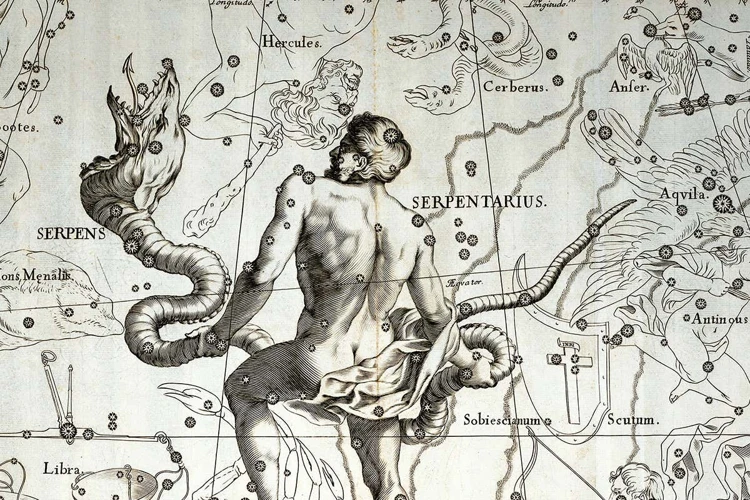
The Modern Rediscovery
After centuries of being overshadowed by the traditional zodiac, Ophiuchus experienced a resurgence in the modern era. With advancements in astronomical study and the evolution of astrological practices, the long-forgotten constellation made a prominent comeback.
Astrological Shift and Ophiuchus: The modern rediscovery of Ophiuchus can be attributed to the shifting understanding of the celestial sphere. As astronomers refined their knowledge of the cosmos and observed the precession of the equinoxes, it became evident that the zodiac wheel no longer aligned with the constellations as it once did in ancient times. This realization led to the inclusion of Ophiuchus as the thirteenth zodiac sign in some astrology circles, challenging the established astrological system and generating both fascination and controversy.
The Impact on Astrological Interpretations: The inclusion of Ophiuchus in modern astrology brought about a fresh perspective on personality traits and characteristics. Individuals born under the influence of Ophiuchus are often described as independent, self-reliant, and possessing a natural wisdom that sets them apart from the traditional zodiac signs. They possess a unique blend of traits from nearby signs, such as Scorpio and Sagittarius, which adds complexity and diversity to astrological interpretations.
This modern rediscovery of Ophiuchus sparked debates among astrologers, enthusiasts, and skeptics alike. While some embraced the addition of a thirteenth sign, others argued that it disrupted the traditional system and diluted the established meanings of the zodiac. Regardless of these differing opinions, the resurgence of Ophiuchus brought renewed attention to the rich tapestry of astrology and stimulated further exploration of its potential implications.
As we conclude our journey through the ancient myths and rediscovery of Ophiuchus, it is clear that this enigmatic constellation holds a significant place in the collective human imagination. Whether viewed through the lens of mythology or integrated into modern astrology, Ophiuchus remains a captivating celestial figure that continues to inspire intrigue and fascination.
Astrological Shift and Ophiuchus
Astrological Shift and Ophiuchus
The concept of Ophiuchus experienced an astrological shift that has sparked significant interest and debate among astrologers and enthusiasts. This shift is rooted in the evolution of the Zodiac system and the inclusion of Ophiuchus as the 13th zodiac sign.
The Impact on Astrological Interpretations: Traditionally, the Zodiac consisted of twelve signs, each representing different personality traits and characteristics. However, due to the precession of the Earth’s axis, the alignment of the constellations has gradually shifted over time. This has led some to argue that Ophiuchus should be recognized as a new zodiac sign, altering the astrological landscape.
Proponents of this astrological shift claim that Ophiuchus brings forth unique qualities and characteristics that were previously unaccounted for. They argue that individuals born between November 29 and December 17 possess traits like wisdom, intuition, healing abilities, and a desire for knowledge. This shift has sparked a reevaluation of astrological charts and interpretations, giving rise to new insights into individual personalities and life paths.
However, skeptics argue that the inclusion of Ophiuchus disrupts the established Zodiac system and poses challenges to traditional astrological interpretations. They point out that changing the entire system would require reassessing the personality traits associated with each sign and recalculating astrological charts.
Despite the ongoing discussions and debates, it is essential to recognize that astrology is a dynamic field that evolves with our understanding of the cosmos. The inclusion of Ophiuchus in the astrological discourse has opened up new avenues for exploration and invites us to reconsider the ways in which we interpret the influence of celestial bodies on human life.
In the next section, we will delve into mystical and mythological stories associated with Ophiuchus, uncovering heroic tales and exploring the gods and goddesses linked to this captivating constellation.
The Impact on Astrological Interpretations
The Impact on Astrological Interpretations
The rediscovery of Ophiuchus and its placement within the zodiac wheel has had a significant impact on astrological interpretations. This revelation has raised questions about the traditional twelve zodiac signs and their corresponding traits, as well as the inclusion of Ophiuchus as the thirteenth sign. Astrologers and enthusiasts have engaged in spirited debates regarding the implications of this newfound addition to the zodiac.
One key aspect of this impact is the reexamination of individual horoscopes and birth charts. Those who find themselves falling under the Ophiuchus sign may experience a shift in their perception of self and their understanding of their astrological identity. The traits and characteristics associated with Ophiuchus, such as independence, intuition, and a deep connection to spirituality, provide individuals with a new lens through which to explore their personalities and life paths. The inclusion of Ophiuchus further expands the possibilities for self-reflection and personal growth within astrology.
This discovery has prompted astrologers to reconsider the influence of Ophiuchus on the characteristics and destinies of individuals born under its domain. The ancient interpretations and symbolism associated with Ophiuchus offer a fresh perspective on the astrological landscape, inviting astrologers to delve into new realms of analysis and prediction. As a result, astrological enthusiasts have a wider range of cosmic energies and archetypes to explore and incorporate into their readings.
The impact on astrological interpretations also extends to the astrological compatibility between signs. With the addition of Ophiuchus, the dynamics between signs may shift, leading to new insights into relationships and compatibility. Astrologers are exploring how the introduction of Ophiuchus may affect the dynamics of love, friendship, and partnerships, offering a more nuanced understanding of interpersonal connections within the zodiac.
As the inclusion of Ophiuchus continues to unfold within the realm of astrology, it opens doors to new possibilities, deepens our understanding of the zodiac, and challenges the traditional foundations of astrological interpretations. This rediscovery invites us to embrace the mystery and complexity of the cosmos, enriching our astrological journey with fresh perspectives and insights.
Conclusion
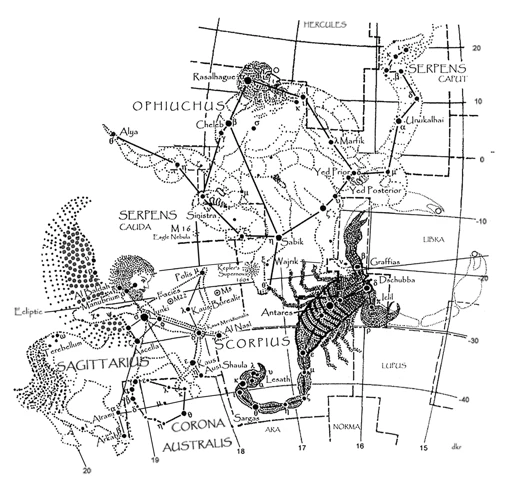
Conclusion
In unraveling the connection between ancient myths and Ophiuchus, we have delved into the origins, symbolism, cultural significance, and astrological interpretations surrounding this intriguing constellation. Through the lens of Greek mythology, we discovered how Ophiuchus became associated with the figure of Asclepius, the god of healing and medicine. The mythological influences on Ophiuchus symbolism stretch beyond Greece, with connections found in Egyptian mythology, where the constellation is linked to the revered healer Imhotep. Additionally, Hindu mythology associates Ophiuchus with Ashwatthama, a skilled physician and warrior.
The significance of Ophiuchus in ancient astrology is notable, as it finds its place on the Zodiac Wheel and offers unique characteristics and interpretations. Its representation as a healer, wise sage, and transformative figure resonates across cultures and epochs, captivating our imagination with heroic tales and mythological stories.
Despite experiencing a modern rediscovery, Ophiuchus and its inclusion in the zodiac system have sparked debates and discussions among astrologers. The astrological shift has raised questions about the impact on interpretations and personal characteristics attributed to individuals born under this constellation.
In conclusion, the connection between ancient myths and Ophiuchus is a testament to the enduring power of mythology and its influence on our understanding of the cosmos. The tales woven around Ophiuchus, the heroes and gods associated with it, and its representation in various cultures throughout history showcase its timeless appeal. Whether seen as a celestial healer or a symbol of wisdom and transformation, Ophiuchus continues to intrigue and inspire, inviting us to delve deeper into the mysteries of the cosmos and the human imagination.
Frequently Asked Questions
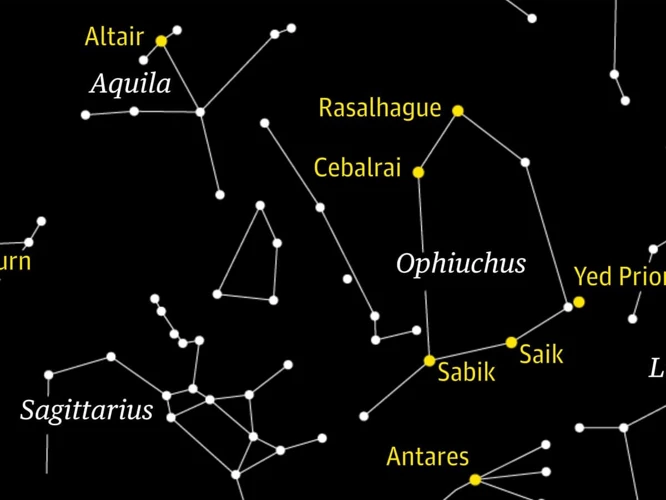
FAQs about Ophiuchus and its Origins
1. What does Ophiuchus symbolize in Greek mythology?
Ophiuchus symbolizes Asclepius, the god of healing and medicine who was transformed into a constellation.
2. How is Ophiuchus connected to ancient astrology?
Ophiuchus is one of the 13 constellations in the ecliptic, which influences astrological interpretations and chart readings.
3. What is the significance of the Serpent Bearer in Egyptian mythology?
In Egyptian mythology, Ophiuchus is associated with Imhotep, a physician and architect who was revered as a god of healing and knowledge.
4. How does Ophiuchus relate to Babylonian culture?
The Babylonians identified Ophiuchus with the god Enki, known for wisdom, knowledge, and the arts of magic and healing.
5. What role does Ophiuchus play in Mayan astrology?
Ophiuchus is believed to represent a hero figure in Mayan astrology, associated with the pursuit of higher consciousness and spiritual growth.
6. Is Ophiuchus recognized as an official zodiac sign?
While Ophiuchus is not officially recognized as one of the twelve zodiac signs, its existence has sparked debates and discussions among astrologers.
7. What are the personality traits of individuals born under Ophiuchus?
People associated with Ophiuchus are believed to possess independent and self-reliant personalities, seeking wisdom and adventure in their lives.
8. How has Ophiuchus influenced art and music throughout history?
Ophiuchus has inspired various artistic representations, including paintings, sculptures, and musical compositions, reflecting its mystical and transformative qualities.
9. How did the rediscovery of Ophiuchus impact astrological interpretations?
The rediscovery of Ophiuchus prompted astrologers to reconsider the traditional zodiac system and explore new possibilities for chart readings and character analysis.
10. Can Ophiuchus alter one’s horoscope or birth chart?
The inclusion of Ophiuchus in astrological calculations may shift the positions of other zodiac signs, potentially impacting the interpretation of horoscopes and birth charts. However, it is essential to consult professional astrologers for personalized readings and guidance.
References
Frequently Asked Questions

1. How did Ophiuchus become a part of the zodiac wheel?
Ophiuchus was included in the zodiac wheel during ancient times due to its astrological significance and alignment with the sun’s path. This addition helped to create a more accurate representation of the celestial bodies and their influence on human lives.
2. What is the mythological story behind Ophiuchus?
The mythological story of Ophiuchus revolves around Asclepius, the Greek god of medicine. Asclepius was known for his healing abilities, and his association with snakes led to the creation of the Ophiuchus constellation.
3. Are there any famous legends or heroic tales associated with Ophiuchus?
Yes, there are several famous legends and heroic tales associated with Ophiuchus. One such tale tells of Asclepius healing a deadly snake’s bite and resurrecting the serpent, demonstrating his extraordinary powers of rejuvenation.
4. How did the Babylonians perceive Ophiuchus?
The Babylonians considered Ophiuchus as a creator god named Ningishzida. They believed that he had the power to protect and guide souls in the afterlife, making him an important figure in their mythological and religious beliefs.
5. What role did Ophiuchus play in Egyptian mythology?
In Egyptian mythology, Ophiuchus was associated with Imhotep, a highly revered physician and architect. Imhotep was deified after his death and became a symbol of healing and wisdom, embodying the characteristics attributed to Ophiuchus.
6. How did the Mayans view Ophiuchus?
The Mayans viewed Ophiuchus as a representation of the feathered serpent god, Kukulkan. Kukulkan was associated with knowledge, fertility, and agriculture, and was considered a vital deity in their mythology.
7. How has the rediscovery of Ophiuchus affected astrology?
The rediscovery of Ophiuchus has sparked debates and discussions within the astrological community. Some astrologers believe that incorporating Ophiuchus into astrological interpretations can provide a more nuanced understanding of personality traits and life events.
8. Does Ophiuchus have specific characteristics based on ancient interpretations?
Ancient interpretations of Ophiuchus often describe individuals born under this sign as intuitive, wise, and drawn to healing professions. They are believed to possess deep spiritual insight and a desire to bring harmony and balance to the world.
9. How does the inclusion of Ophiuchus in the zodiac wheel impact horoscope readings?
The inclusion of Ophiuchus in the zodiac wheel means that horoscope readings now consider an additional astrological sign. This can lead to more varied and nuanced interpretations of personality traits and life events for those born under Ophiuchus.
10. Is Ophiuchus considered a 13th zodiac sign?
While Ophiuchus is sometimes referred to as the 13th zodiac sign, it is important to note that the zodiac wheel traditionally consists of 12 signs. Ophiuchus is seen as an additional constellation with its own unique symbolism and influences.

